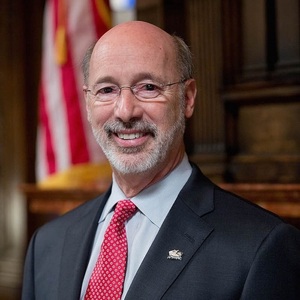Wolf asks EPA to waive 2017, 2018 RFS RVOs, RFA responds




November 6, 2017
BY Erin Krueger
On Nov. 2, Pennsylvania Gov. Tom Wolf issued a letter to EPA Administrator Scott Pruitt asking for a nationwide waiver of the 2017 and 2018 Renewable Fuel Standard renewable volume requirements (RVOs). “This and request is based upon the high cost of compliance associated with the RFS and impact these costs have on the continued viability of the oil refining sector in the Northeast, as well as on the local and regional economies,” Wolf wrote.
The waiver request follows a letter Wolf issued to President Trump on Oct. 20 asking the administration to waiver RVOs for Northeast refiners due to high renewable identification number (RIN) prices.
Within the Nov. 2 waiver request letter, Wolf states that the EPA has the authority to reduce volume mandates, in whole or in part, based upon a determination that the implementation of the requirement would severely harm the economy of a state, region or the U.S. “Specifically, I request that you reduce the 2017 and 2018 volumes to a level that avoids the severe economic harm experienced by the Northeast region of the United States as a result of the high costs of purchasing RINs to comply with the RFS,” Wolf wrote. “The level for the implied conventional mandate should be no more than 9.7 percent of annual gasoline demand.
Wolf claims that the 2017 and 2018 RVOs could harm Pennsylvania, the East Coast region and the national economy by “levying significant and unreasonable costs on merchant petroleum refiners, causing harm to their employees and the states and regions in which they operate.” Wolf argues a waiver is necessary to protect refining jobs and domestic refining capacity in the U.S.
Advertisement
Advertisement
In the letter, Wolf describes specific financial impacts that high RIN prices would have on three merchant refiners located in the Northeast, including Philadelphia Energy Solutions Refining and Marketing LLC, Monroe Energy and PBF Energy.
He also voiced some support for the RFS. “To be clear, I understand and appreciate the benefits of the Renewable Fuel Standard, and support the goals this program was created to serve,” Wolf wrote. “It is certainly important that we continue to work to address greenhouse gas emission and reduce reliance on imported oil. However, these goals were never intended to be pursued in a matter that would prevent U.S. refiners from being able to operate.”
The Renewable Fuels Association has spoken out against the waiver request issued by Wolf. “Gov. Wolf is prioritizing the failed business plan of an aging refinery ahead of jobs in the agricultural sector and reduced prices for consumers at the pump,” said Bob Dinneen, president and CEO of the RFA. “Philadelphia Energy Solutions, one of two merchant refiners highlighted by the governor in the waiver request, could eliminate its renewable identification number (RINs) costs by investing in ethanol blending infrastructure, as other merchant refiners have done, instead of unfairly blaming the RFS for its financial woes.
Advertisement
Advertisement
“As RFA has outlined in a fact sheet, Gov. Wolf’s waiver request overlooks a number of important realities regarding RIN credits and the gasoline market, factors affecting probability in the Northeast refining sector and the burden of proof associated with demonstrating ‘severe harm,’” he continued. “When these facts are properly taken into consideration, it is clear that EPA has no choice but to deny Gov. Wolf’s request for a waiver of the RFS requirements.
“This waiver request doesn’t meet the very high threshold required by the statute,” Dinneen said. “Section 211(o)(7) of the Clean Air Act allows a waiver if the EPA Administrator determines that implementation of the RFS requirements would severely harm the economy of a state, a region or the United States. Further, for a waiver to be granted, EPA must find that implementation of the RFS itself would severely harm the economy, not just contribute to such harm on one sector of the economy.”
“The RFS has been an unmitigated success, bringing a cleaner, lower cost and higher octane fuel to consumers,” Dinneen continued. “For Gov. Wolf and refiners to unfairly blame the RFS for bad business decisions just isn’t right.”
Upcoming Events





